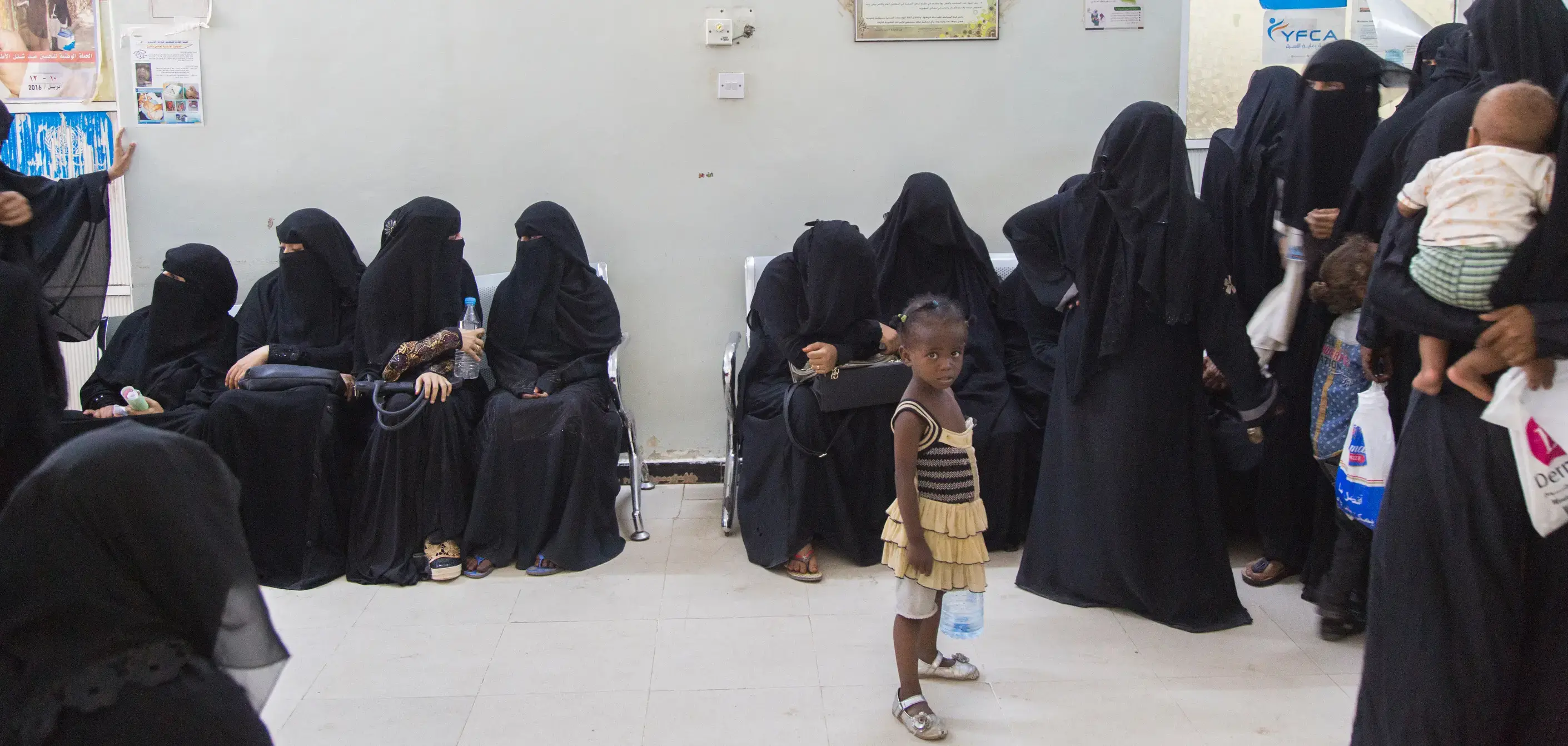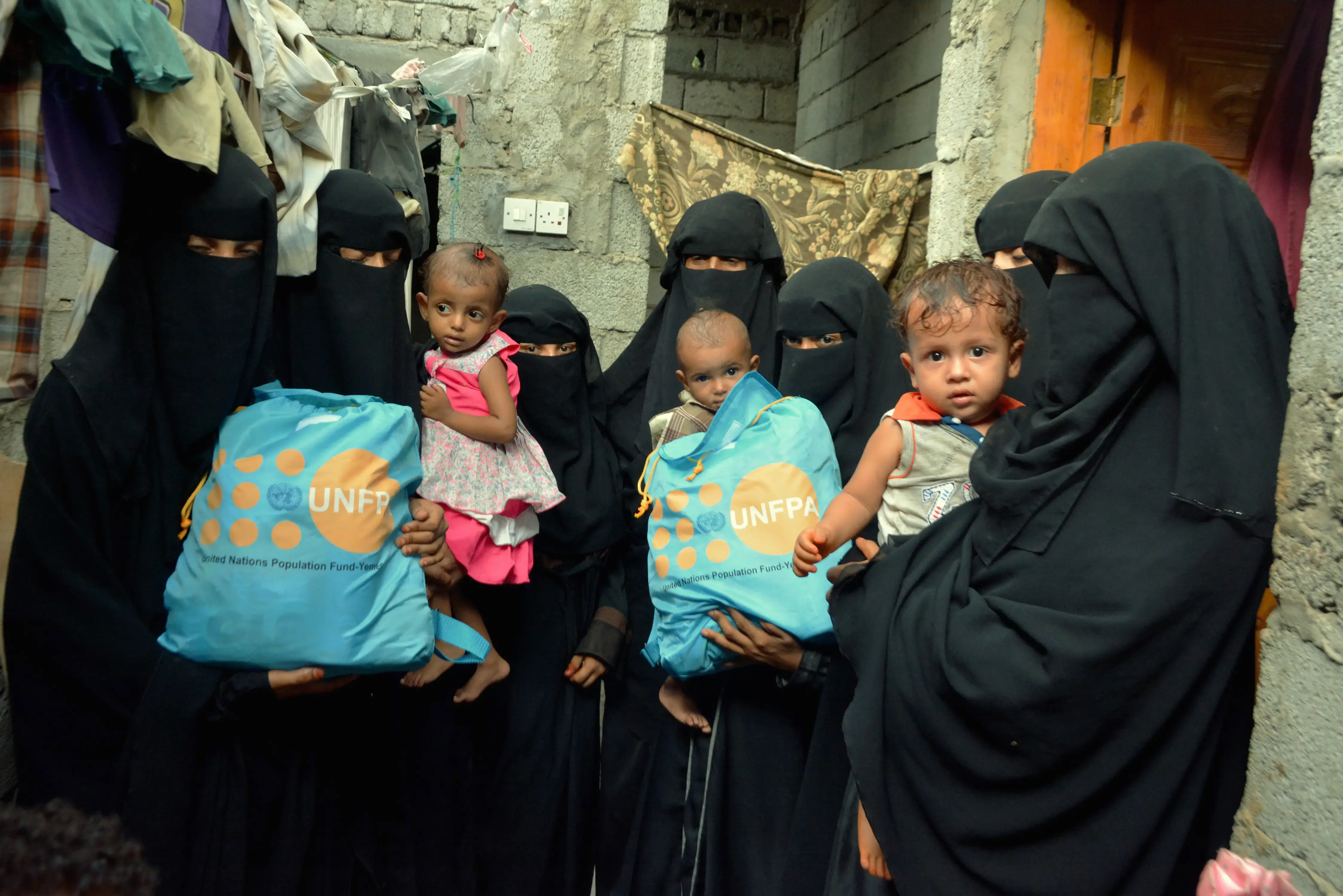The humanitarian crisis in Yemen remains the worst in the world; driven by five years of conflict and political instability. Humanitarian conditions continue to deteriorate, including internal displacement, famine, outbreaks of cholera and COVID-19. An estimated 24.1 million people – over 80 per cent of the population – are in need of some form of assistance, including 14.4 million who are in acute need.
COVID-19 continued to spread across the country in September. By 26 September, 2,034 confirmed cases of COVID-19 had been reported in Yemen, including 588 deaths and 1,262 recoveries, since the first case was reported on 10 April 2020. While the number of reported cases has continued to slow, health professionals remain concerned on the actual extent of COVID-19 in Yemen for reasons that include lack of testing facilities and official reporting. UNFPA remains a frontline partner to the COVID-19 response, ensuring the protection of health workers and women and girls accessing reproductive health services.
The uptick in fighting in and around Marib continued into September leading to an influx of internally displaced persons. Initial reports estimate more than 3,000 households (18,000 individuals) have been displaced since the beginning of September 2020 alone. The UNFPA-led Rapid Response Mechanism is distributing emergency relief within 48 to 72 hours of displacement. More than 3,000 kits were distributed during September, while mobile teams provided reproductive health and protection services in and around Marib.
Lack of funding is crippling the UN's humanitarian operation in Yemen. Fifteen of 41 major humanitarian programmes have already been reduced or shut down; with only 37.8 per cent received of the $3.23 billion required for the Yemen Humanitarian Response Plan in 2020. UNFPA’s appeal for $100.5 million in 2020 received only 63 per cent by end September. Seventy per cent of UNFPA’s life-saving reproductive health programme remains suspended due to the lack of funding, while fifty percent of UNFPA’s women's protection programme will be suspended by October. This would result in more than 2 million women and girls losing access to reproductive health and protection services. To keep reaching the most vulnerable women and girls up to the end of the year, UNFPA requires $37.3 million with an additional $20 million to respond to the COVID-19 pandemic.
By September, UNFPA's response has reached over 1.6 million women and girl with life-saving reproductive health and protection information and services, with support to 61 health facilities, 51 safe spaces, 8 shelters and 6 specialized mental health centres.





